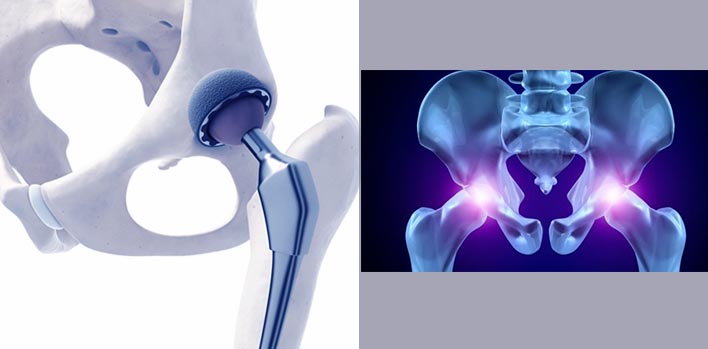What is Hip Joint Calcification and Hip Prosthesis?
Friday, July 28, 2017 | Healthy lifestyle
When is it necessary, how is the surgical procedure?
Our joints are ineffective because of fractures, cartilage injuries, arthritis, and rheumatic diseases. Artificial joint operations are applied instead of our deformed joints with the aim of maintaining our daily life without pain and without limitations.
Arthroplasty (artificial joint-prosthesis) operations are widely practiced. Most often; Hip, knee and shoulder joint prosthesis operations are performed.
We will examine the hips in order to find answers to frequently asked questions such as how the hip surgery is performed, how painful it is, and when to start walking.
When is hip replacement required?
The patient has pain that does not develop despite the applied medication and physical therapy. His daily life was negatively affected. He could not walk as well, but began to struggle to get up from where he was sitting. However, in addition to these complaints, it is necessary to demonstrate that the joint has remodeled irreparably with treatments that protect the joint .
Can any patient with hip joint failure have prosthetic surgery?
If general health status permits surgery, surgery may be performed. If the problems related to general health status can be corrected by treatment, the operation is delayed after this treatment. One of the most important risks of prosthetic surgery is infection. In patients who are at risk of infection in the body or in the joint region where surgery will be performed, prosthetic surgery is not performed. The risk of infection is assessed and information about the outcome is given, and it is decided what needs to be done.
Patient who is given the operation decision, how to prepare the operation ?
The technical details are prepared by drawing X-ray films for the hip joint to be operated on and surgery preparation. Chest X-ray and ECG are taken and laboratory examinations are done. Illnesses and drugs used are identified. Possible risks are identified with the internal examination. If necessary , cardiology, neurology, pulmonology specialist and other examinations performed. According to the blood table, it is determined that blood should be given during or after the operation, and a sufficient amount of erythrocyte suspension (blood) is prepared. Patients who use blood thinners like aspirin, coumadin, plavix are not allowed to use these medications for 5-7 days before surgery. Instead of these medications that can lead to uncontrolled bleeding during surgery, blood thinners are used to control bleeding.












